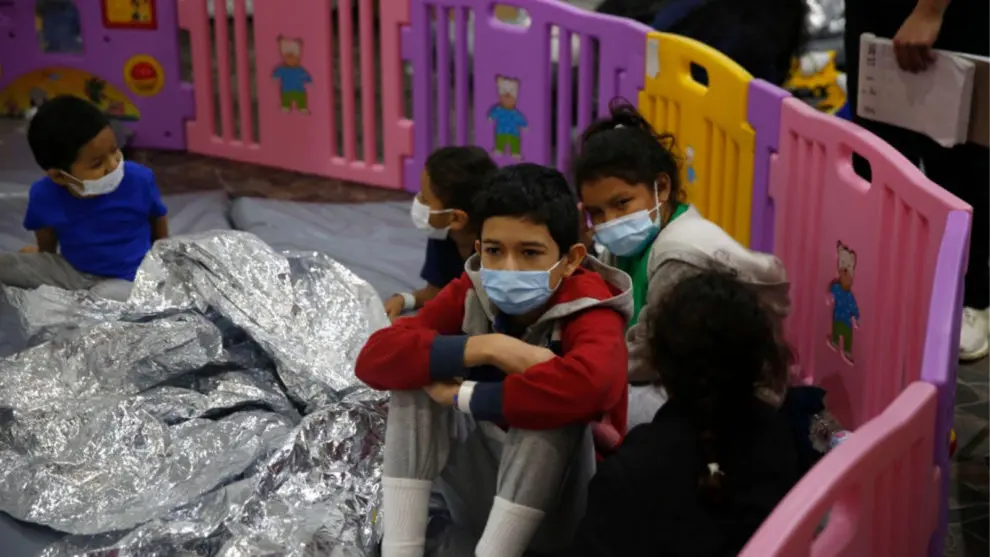
Attacks on migrant children in the United States continue to threaten the well-being of children seeking refuge. In a May disaster declaration, Texas Governor Greg Abbott ordered that the state revoke licenses of facilities caring for unaccompanied children — children younger than 18 who migrated to the U.S. without a parent or legal guardian and do not have immigration documentation. Once an unaccompanied child is processed at the border, the Office of Refugee Resettlement (ORR) assumes responsibility for providing care, security, and safety in a facility until authorities can locate a sponsor for the child. Facilities are required to abide by multiple layers of accountability and oversight through the Flores Settlement Agreement of 1997, ORR standard policies of care, and state licensing standards to prioritize children’s well-being and ensure that they have access to trauma-informed care. As states such as Florida begin to follow Texas’ lead, advocates worry that some of the measures used to maintain proper oversight of these facilities will be lost. Eliminating any of the existing layers of safeguards can place unaccompanied children — many of whom have fled violence, persecution, or trafficking in their home country — at risk of further harm and trauma.
The layers of safeguards began in 1997 with the establishment of the Flores Settlement Agreement. The agreement created baseline standards for minors in custody that take into consideration their well-being and safety. These standards established a general precedent to maintain independent oversight of federal facilities. The agreement also establishes how long and where minors can be housed in detention facilities. Within the Flores Agreement, private attorneys can enter and examine facilities on behalf of children and families. These independent attorneys can also meet with children to make sure that facilities are meeting minimum standards of care. This third-party oversight has become an important way that investigators can hold the government accountable and keep children safe.
The minimum standards of care established in the Flores Agreement also required ORR to create a baseline standard of established, detailed and robust policies aligned with federal law and the agreement to uphold child safety and well-being. These standards require an unaccompanied child to be placed “in the least restrictive care setting in their best interest” and incorporate child welfare principles, the best interest of the child, and considerations for each child’s unique circumstances.
The Flores Agreement also mandates that states must license ORR facilities to uphold minimum standards of care. As ORR does not license individual facilities, state licenses establish a more direct layer of oversight to monitor the quality of care in each facility and provide more timely state-led investigations of claims of abuse or neglect. The standards set by state licensing originated out of reforms in the child welfare system to protect, promote and ensure the best interests of children in foster care. Although the program for unaccompanied children and the child welfare system are separate entities, both share the goal of providing care that is in the best interest of the child until they are reunited with family and upholding standards of care and oversight through multiple layers of accountability.
While these three entities all provide a form of oversight, they also have their individual shortfalls. While ORR, particularly under the Biden Administration, has certainly continued to work to create a safer environment for children, a GAO report illustrated that ORR often lacks strong implementation measures and monitoring oversight to quickly mobilize on-the-ground assistance, while also lacking standards for timely investigations of complaints about a facility. Since ORR’s policies are not codified in law, they are subject to change at any moment and contribute to many gaps concerning a child’s safety, security, and overall well-being. This is where state licensing steps in — states are often able to respond and investigate more efficiently. Additionally, the Flores Settlement and the independent oversight it provides has been under attack. In a series of actions throughout 2018 and 2019, the Trump Administration continuously attempted to undermine or terminate the agreement resulting in a series of lawsuits. Attacks on Flores mean attacks on independent oversight of the ORR system, thus showing why state licensing is an important piece of the puzzle to preserve unaccompanied children’s well-being. However, Govs. Abbott and DeSantis’ attacks on state licensing have made clear that each of these systems of oversight — Flores, ORR, and state licensing—are needed to protect children’s care and well-being.
In 2020, unaccompanied children spent an average of 102 days in an ORR-funded facility; in other words, children spent more than three months of their life, time fundamental in shaping the trajectory of their development, in government custody. This fact illustrates why it is of the utmost importance that ORR facilities are held to multiple layers of accountability. As the Flores Agreement, state licensing and ORR standards of care establish a foundational network of essential oversight for ORR facilities, we recommend all parties responsible for the care of unaccompanied children prioritize their well-being by:
- Adopting higher standards of care: We urge all entities involved in caring for unaccompanied children to uphold high standards of care that align with best practices and strong oversight.
- Improving existing monitoring and oversight: Strengthening rigorous, independent, and expert monitoring and oversight are essential to providing care that advances child well-being.
- Applying lessons learned and best practices in child welfare and child well-being to the care of unaccompanied kids: In order to establish robust best practices for children in ORR facilities, regular and transparent collaboration between ORR providers, child advocacy groups, states, and child welfare advocates is foundational.
Every child deserves to have their basic needs met and to feel safe, secure, and supported while awaiting family reunification. We cannot deprive children of any safeguard and must hold ORR facilities to the highest standard.